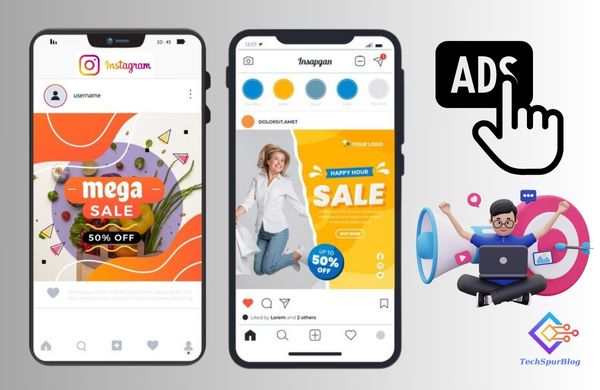
In today’s digital marketplace, Instagram stands out as a powerhouse for product advertising, with over 2 billion monthly active users actively discovering and purchasing products through the platform. Whether you’re launching a new product or scaling your existing business, Instagram’s visual-first approach combined with sophisticated targeting options offers unprecedented opportunities to reach your ideal customers.
Understanding Your Target Audience on Instagram
Building Your Ideal Buyer Persona
Before diving into targeting options, you need to understand who you’re trying to reach. Instagram’s user base is diverse, but certain demographics tend to be more active. Recent data shows that:
-
18-34 year olds make up the largest user segment
-
57% of users check the platform daily
-
Users spend an average of 30 minutes per day on the platform
To create your buyer persona, consider:
Demographics: Age, location, income level, occupation
Psychographics: Values, interests, lifestyle choices
Behavioral patterns: Shopping habits, brand preferences, device usage
Pain points: Problems your product solves
Leveraging Instagram Insights
Instagram provides valuable data about your current followers through Instagram Insights. Access this by converting to a business account and analyze:
-
Peak engagement times
-
Content performance metrics
-
Follower demographics
-
Story and Reel completion rates
Pro Tip: Export your Instagram Insights data monthly to track audience evolution and identify emerging patterns in engagement.
Also Read: Shopify SEO Tips for Beginners: Guide to Boost Your Store’s Visibility
Setting Up Effective Instagram Ad Targeting
Choosing the Right Ad Format
Different ad formats serve different targeting objectives:
Carousel Ads
-
Best for: Product catalogs, multi-feature showcases
-
Targeting advantage: Higher engagement from interested users
-
Average swipe-through rate: 1.08%
Story Ads
-
Best for: Time-sensitive offers, behind-the-scenes content
-
Targeting advantage: Captures full-screen attention
-
Completion rate benchmark: 86% for 1-second stories
Video Ads
-
Best for: Product demonstrations, tutorials
-
Targeting advantage: Higher retention and engagement
-
Optimal length: 15-30 seconds for best performance
Custom Audience Creation
Building custom audiences is crucial for targeted advertising. Here’s how to create effective ones:
Customer List Targeting
-
Upload your email database
-
Match rate typically ranges from 30-70%
-
Regular updates ensure freshness
Website Visitor Retargeting
-
Install Meta Pixel
-
Create audiences based on specific page visits
-
Set appropriate lookback windows (30-180 days)
App User Targeting
-
Target based on in-app actions
-
Focus on high-value user segments
-
Exclude churned users
Lookalike Audience Strategies
Lookalike audiences expand your reach to similar users:
Source Audience Selection
-
Use your top 1-5% customers
-
Minimum 1,000 users recommended
-
Update source audience monthly
Audience Size Optimization
-
1% lookalike: Most similar to source
-
1-5% lookalike: Balance of similarity and reach
-
5-10% lookalike: Broader reach, lower similarity
Also Read: Effective Keyword Research for PPC Advertising: A Step-by-Step Guide
Advanced Targeting Techniques
Geographic and Language Targeting
Optimize your reach with location-based strategies:
Regional Targeting
-
Target specific cities, regions, or countries
-
Consider seasonal variations
-
Account for cultural differences
Language Optimization
-
Match ad copy to local language
-
Consider cultural nuances
-
Test multi-language campaigns
Demographic and Interest-Based Targeting
Refine your audience with specific criteria:
Demographic Combinations
-
Age + Income Level
-
Education + Job Titles
-
Relationship Status + Life Events
Interest Layering
-
Combine multiple relevant interests
-
Include competitor brand interests
-
Test niche vs. broad interest combinations
Measuring and Optimizing Performance
Key Performance Metrics
Track these essential metrics:
Engagement Metrics
-
Click-through rate (CTR): Benchmark >1%
-
Engagement rate: Benchmark >3%
-
Save rate: Benchmark >1%
Conversion Metrics
-
Cost per acquisition (CPA)
-
Return on ad spend (ROAS)
-
Add-to-cart rate
Optimization Strategies
Regular Testing
-
A/B test ad creative weekly
-
Test audience combinations monthly
-
Review and adjust budgets bi-weekly
Performance Analysis
-
Monitor frequency caps
-
Analyze time-of-day performance
-
Track audience fatigue
Also Read: Effective Retargeting PPC Ads: Boosting Conversions and Brand Loyalty
Best Practices for Sustainable Growth
Budget Management
-
Start with 5-10% of your monthly marketing budget
-
Scale successful campaigns gradually
-
Maintain consistent daily spending
Creative Refresh
-
Update ad creative every 2-3 weeks
-
Test new formats regularly
-
Keep branding consistent
Audience Expansion
-
Start narrow, then expand
-
Test new lookalike audiences
-
Monitor audience overlap
Conclusion
Success with Instagram ad targeting requires a balanced approach of understanding your audience, implementing sophisticated targeting strategies, and continuous optimization. Start with a solid foundation of audience research, implement the targeting techniques outlined above, and regularly measure and adjust your approach based on performance data.
Next Steps
-
Audit your current Instagram audience
-
Set up Meta Pixel for retargeting
-
Create your first custom audience
-
Launch a test campaign with clear KPIs
Remember, effective targeting is an iterative process. What works today might need adjustment tomorrow, so stay agile and keep testing new approaches while maintaining what works.

Leave a Reply